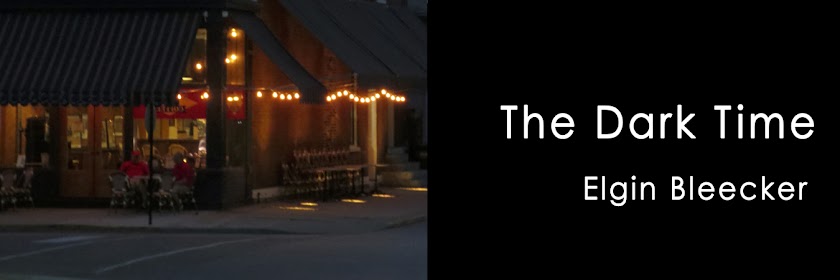Lots of books make me laugh out loud, but few ever give me a shivering chill. To that very short list, I can add William Lindsay Gresham’s Nightmare Alley.
This powerful and creepy 1946 crime novel about the rise and fall of a heartless, phony mind reader knocked me out.
For years, I put off reading Nightmare Alley because I knew and liked the 1947 movie based on the book. The picture, starring Tyrone Power, is one of the great noir films. For that reason, I thought the book would hold no surprises. I was wrong and should have read it much earlier.
Nightmare Alley is the story of Stanton Carlisle and his 20-year journey from a callow youth working for a traveling carnival, trying to learn the tricks of the trade, conning the sexually charged Madame Zeena into teaching him her mind-reading act, running off with Molly, the beautiful teenage orphan of a carny gambler, gaining notoriety as a mind reader himself, earning big money entertaining wealthy patrons, and finally upping his game by passing himself off as a minister who can commune with the dead in order to fleece the very rich and gullible.
Carlisle, a soulless con artist, the product of a strange and brutal upbringing, is haunted by his fears. The title, Nightmare Alley, refers to his recurring dream of running in a dark alley from a nameless, faceless terror pursuing him.
Nearing a mental breakdown, he consults the unscrupulous Dr. Lilith Ritter, an ice-cold psychologist and dominatrix who puts Carlisle literally at her feet. With her support, Carlisle takes the biggest chance of his life, and… Well, I will let you find out for yourself.
Gresham was a very good writer, moving easily from the slick spiel of the carnival barkers to the smooth patter of the phony mind reader, to the seductive religious tones of the spiritualist. He also nails the dialogue and thoughts of the crude cynics, the uneducated country folk, and the upper class. At times Gresham’s prose is as frank and modern as any current novel, and its economy packs quite a punch. Some writers have the ability to charge each page with an energy that sweeps up and propels a reader through a story. Gresham had that and more.
An interesting man, Gresham was an adventurer, going off to fight with the Loyalists in the Spanish Civil War of the 1930s, a writer who turned out stories for the slicks and the pulps in the 1940s and 1950s, and someone with a life-long fascination with magic and the carnival. Near the end of his life – he committed suicide in 1962 at age 53 – Gresham co-wrote a biography of magician Harry Houdini.
Nightmare Alley, with its callous cruelty, frank sexuality and occasional gutter language, may not be for everyone. But anyone who reads it will be rewarded with a well-written and unforgettable tale.
(For more forgotten books, please see Patti Abbot's blog.)
Thursday, April 21, 2016
Tuesday, April 5, 2016
Film: "Mikey & Nicky" with Cassavetes & Falk
At the time of making “Mikey and Nicky”, Falk and Cassavetes, I would say, were at the top of their game. Since 1968, Falk had been starring in his own popular TV series Columbo, and during that same time, Cassavetes had made six indie films, two starring Falk, including “A Woman Under the Influence,” for which Cassavetes was nominated for an Academy Award as best director.
“Mikey and Nicky” is a two-man story of Nicky who, fearing his mobster boss is going to have him killed, reaches out to his old friend, Mikey for help. But then Nicky not only refuses to listen to Mikey, but also mocks and belittles him to the point where Mikey gives up on Nicky. But Mikey is not a good guy and has an agenda of his own.
Falk and Cassavetes do some high-wire acting here, where either or both of them could fall off at any moment. Too many of the scenes nearly come apart. Too many are long and a little tedious. But strangely they add up by revealing the two men and causing the viewer to care about them.
Is “Mikey and Nicky” a great film? Hardly. Is it an easy film to watch? No way. Is it worth a look? You bet.
(I would like to thank Juri of Pulpetti for reviewing this film a couple of weeks ago and for reminding me that despite being a fan of both Falk and Cassavetes, I had never seen it. “Mikey and Nicky” is a hard film to find, but there is a poor quality video of it currently on YouTube.)
(For more overlooked films, check out Todd Mason's blog.)
Subscribe to:
Posts (Atom)


